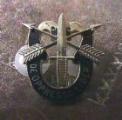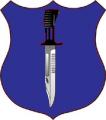Could it be that this advance on complexity is part of a self-fulfilling prophecy? We are being told that conducting COIN is the graduate level of military operations. If one accepts that premise, then the doctrine needed to execute "graduate-level" warfare must also be on the order of some Ph.D. dissertation in an area of arcane wisdom.
After slogging through the opening chapters of the FM, I concluded that its authors could have summed up design with the sentence, "Submit the environment to circumspection ere traveling some feet of space via muscular projection."
I also suspect that most folks on the ground who are performing successfully and not just reacting to what happens around them could express that one sentence summary much more succinctly: "Look before you leap."
















 ) over the decision?
) over the decision?





Bookmarks